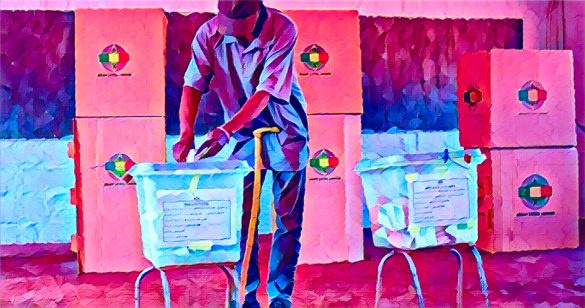Over the recent weekend, Zimbabwe’s political landscape witnessed a pivotal shift as the ruling Zanu PF party claimed two critical parliamentary seats in the by-elections held in Harare East and Mt Pleasant. In a robust show of electoral strength, Zanu PF candidates Kevin Mutimbanyoka and George Mashavave achieved resounding victories.
Mutimbanyoka garnered 3,533 votes, decisively outpacing independent candidate Cynthia Ropafadzo Cheza, who secured 1,974 votes in Harare East. Similarly, in Mt Pleasant, Mashavave won with 3,205 votes, significantly ahead of independent candidates Nason Mamuse and Brian Ticky, who received 945 and 220 votes, respectively.
Strategic Boycott by the Opposition
The by-elections were marked by the absence of the main opposition party, Citizens Coalition for Change (CCC), which opted out of the race. The CCC cited an uneven political playing field and expressed its intention to boycott all future polls until substantial electoral reforms are implemented. This strategic withdrawal highlights ongoing tensions and challenges within Zimbabwe’s electoral system, underscoring a deep-seated demand for changes to enhance fairness and transparency.
The Zimbabwe Electoral Support Network (ZESN), an independent elections watchdog, provided a preliminary assessment of the by-elections. According to ZESN, the elections were conducted peacefully and showcased significant improvements in logistical aspects such as the quality of signage directing voters to polling stations and the legibility of voter rolls. These enhancements contributed to a smoother electoral process, reflecting a progression in the administrative aspects of Zimbabwe’s elections.
ZESN also emphasized the importance of these elections in shaping democratic governance in Zimbabwe. They remarked on the role of National Assembly elections in forming legislative bodies that not only create and amend laws but also represent citizens’ interests and foster governmental accountability. The network urged the public to actively participate in voting, highlighting the influence of elections on national policies, the direction of governance, and the distribution of power across the country.
Recommendations for Future Elections
In its statement, ZESN recommended further improvements to ensure inclusivity and accessibility in future elections. One notable suggestion was the need for the Zimbabwe Electoral Commission (ZEC) to continue enhancing the visibility of electoral materials, such as enlarging the font on voter rolls to accommodate those with visual impairments. Such measures are critical in fostering an electoral environment where all citizens can participate effectively and without barriers.
Source: New Zimbabwe


